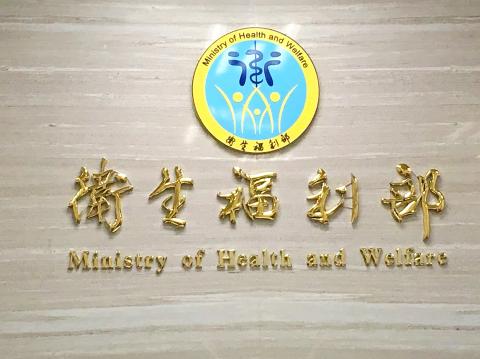The Presidential Office, the ministries of health and welfare, foreign affairs and the Interior, as well as the Financial Supervisory Commission, were the government agencies most targeted by hackers last year, a high-level government source said.
The government classifies information security incidents into four levels based on their severity, with level 1 being the lightest and level 4 being the most severe.
A level 1 incident involves temporarily disabling or defacing a Web page, while level 2 and level 3 incidents refer to crashing the secondary and the main system respectively.

Photo: Lin Yen-tung, Taipei Times
Taiwan has not had a level 4 incident, which would be when the core systems of more than one government agency crash, and state secrets are stolen.
Last year, 151 incidents were reported by ministries and agencies overseen by the Executive Yuan — 116 level 1 incidents, 31 level 2 incidents and four level 3 incidents — government data showed.
Malware was found last year in the health ministry’s core information security system, which had apparently been implanted to steal information on Taiwanese covered by the National Health Insurance (NHI) program, a senior government official said on condition of anonymity.
“Fortunately, we were able to stop the level 3 attack before the NHI information could be snatched,” the official said, adding that Chinese hackers were believed to be behind the attack.
The foreign ministry, the interior ministry and the commission all experienced a level 3 attack last year, the official said.
The attack on the foreign ministry targeted the travel information of Taiwanese registered with the Bureau of Consular Affairs, while the interior ministry’s automatic immigration clearance system at the nation’s airports was hit, the official said.
Hackers targeting the commission stole NT$1.8 billion (US$60.27 million at the current exchange rate) from Far Eastern International Bank (遠東商銀), they said.
The Presidential Office was targeted seven times — six at level 1 and one at level 2.
The cyberattacks targeting its information security system had a low success rate thanks to its extensive protection measures, they said.

FIREPOWER: On top of the torpedoes, the military would procure Kestrel II anti-tank weapons systems to replace aging license-produced M72 LAW launchers Taiwan is to receive US-made Mark 48 torpedoes and training simulators over the next three years, following delays that hampered the navy’s operational readiness, the Ministry of National Defense’s latest budget proposal showed. The navy next year would acquire four training simulator systems for the torpedoes and take receipt of 14 torpedoes in 2027 and 10 torpedoes in 2028, the ministry said in its budget for the next fiscal year. The torpedoes would almost certainly be utilized in the navy’s two upgraded Chien Lung-class submarines and the indigenously developed Hai Kun, should the attack sub successfully reach operational status. US President Donald Trump

TPP RALLY: The clashes occurred near the Chiang Kai-shek Memorial Hall on Saturday at a rally to mark the anniversary of a raid on former TPP chairman Ko Wen-je People who clashed with police at a Taiwan People’s Party (TPP) rally in Taipei on Saturday would be referred to prosecutors for investigation, said the Ministry of the Interior, which oversees the National Police Agency. Taipei police had collected evidence of obstruction of public officials and coercion by “disorderly” demonstrators, as well as contraventions of the Assembly and Parade Act (集會遊行法), the ministry said in a statement on Sunday. It added that amid the “severe pushing and jostling” by some demonstrators, eight police officers were injured, including one who was sent to hospital after losing consciousness, allegedly due to heat stroke. The Taipei

NO LIVERPOOL TRIP: Taiwan’s Lin Yu-ting, who won a gold medal in the boxing at the Paris Olympics, was embroiled in controversy about her gender at that event Taiwanese boxer Lin Yu-ting (林郁婷) will not attend this year’s World Boxing Championships in Liverpool, England, due to a lack of response regarding her sex tests from the organizer, World Boxing. The national boxing association on Monday said that it had submitted all required tests to World Boxing, but had not received a response as of Monday, the departure day for the championships. It said the decision for Lin to skip the championships was made to protect its athletes, ensuring they would not travel to the UK without a guarantee of participation. Lin, who won a gold medal in the women’s 57kg boxing

The US has revoked Taiwan Semiconductor Manufacturing Co’s (TSMC, 台積電) authorization to freely ship essential gear to its main Chinese chipmaking base, potentially curtailing its production capabilities at that older-generation facility. American officials recently informed TSMC of their decision to end the Taiwanese chipmaker’s so-called validated end user (VEU) status for its Nanjing site. The action mirrors steps the US took to revoke VEU designations for China facilities owned by Samsung Electronics Co and SK Hynix Inc. The waivers are set to expire in about four months. “TSMC has received notification from the US Government that our VEU authorization for TSMC Nanjing